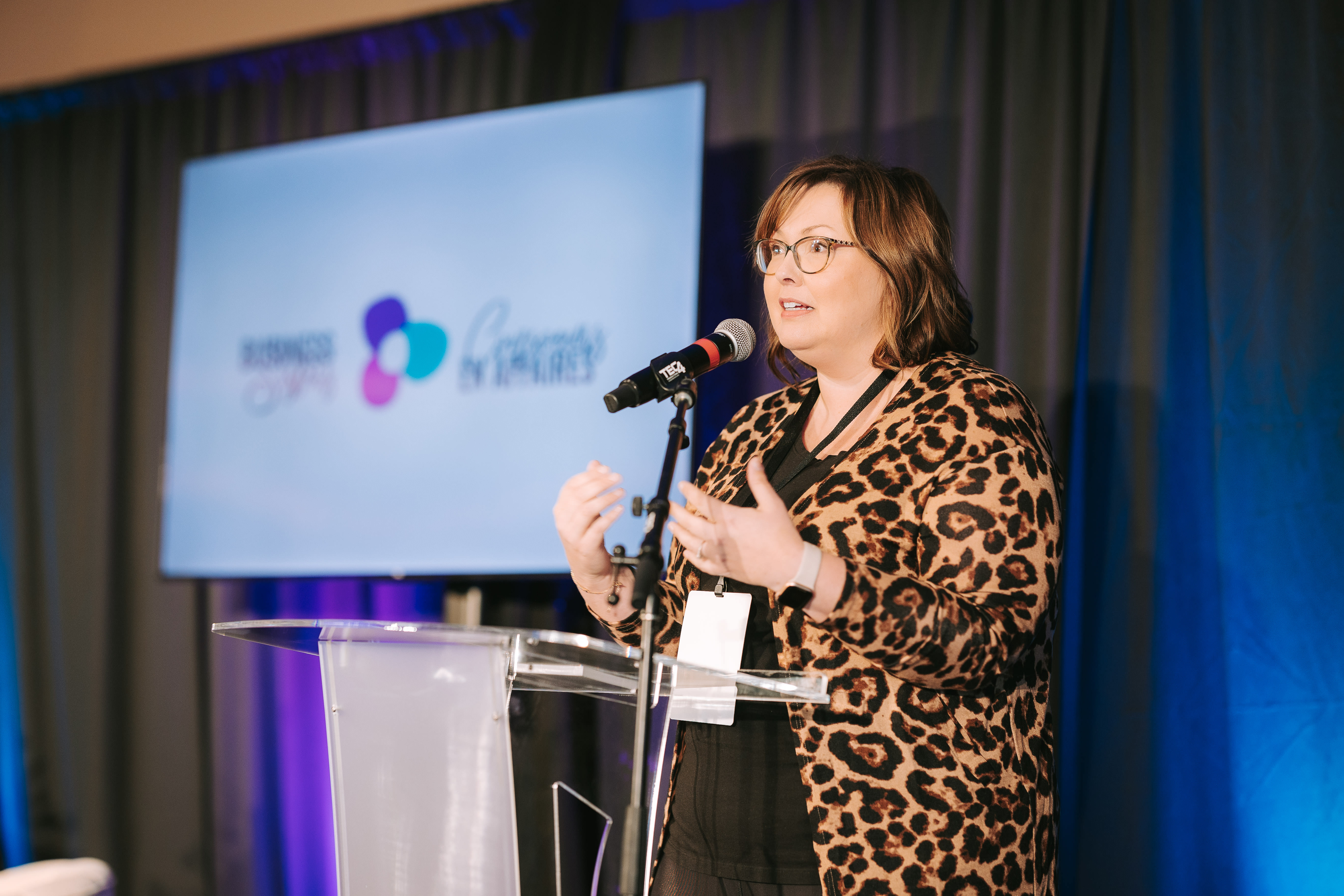By using this website, you agree to cookies being stored on your device in order to improve site navigation, analyse site usage and contribute to our marketing efforts. See our privacy policy for more information.
Imposter Syndrome and Women Entrepreneurs

Previously I wrote about a personal story about perfectionism and the inner critic inside our head. That inner critic is something that’s been studied by psychologists for over 45 years. It’s call Imposter Syndrome, something that a 2020 KPMG study found affects 75% of women executives.
First identified in a 1978 study by Pauline Clines and Suzanne Imes, Imposter Syndrome is based on the belief we are "a fraud," and soon our “luck” will run out, often despite clear evidence to the contrary. It produces anxiety and can lead to depression.
In my work with women entrepreneurs, I hear evidence of Imposter Syndrome when they say:
• “Why the hell did I think I could do this? I don’t know the first thing about being an entrepreneur!” (Even though they launched a successful venture)
• “I feel so stupid, I’m not good with numbers!” (Even though they run a profitable business)
I have no idea if women business owners are more or less subject to Imposter Syndrome than their corporate colleagues, but more than four decades after the original study, why are we still feeling like imposters at all?
In entrepreneurship, I see three main reasons:
1) Women entrepreneurs are still the minority – According to the Women’s Entrepreneurship Knowledge Hub, women represent 37% of all self-employed Canadians, while just 17% of all small and medium-sized businesses are women-owned. Since Imposter Syndrome disproportionally affects people who are in minority roles (like women were in the workforce in 1978), it makes sense we are prone to feel anxiety. When we are in the minority, we’re under a microscope where every move is scrutinized. Scrutiny can quickly turn to undeserved criticism, especially for racialized women.
2) Society is more critical of women who fail – In The Confidence Code, authors Katty Kay and Claire Shipman review studies that show men and women are harsher in their criticism when a women leader fails, versus a man in the same position. But they don’t even have to fail; people around the globe generally distrust women leaders. Think of all the women politicians who get negative press for their appearance or how they behave. Is it any wonder we can doubt whether we have what it takes?
3) The language of entrepreneurship is masculine – Back to entrepreneurship, research has also shown that the language of entrepreneurship tends to be masculine, at times even aggressive. We regularly hear about killing it at business, beating the competition, slashing prices… Business personalities like Elon Musk or Kevin O’Leary are celebrated for their bravado and forceful language! When exposed to that narrative, many do not feel at ease – but especially women. As we examine entrepreneurs’ roles in a post-pandemic world, and in rural areas, it’s time to make business more gender-neutral and inclusive.
Feeling like an imposter, afraid to fail and lacking support in what can still be perceived as “a man’s world,” I believe women entrepreneurs can benefit from talking about how trying to avoid feeling like an imposter, we fall into the perfectionist trap. This affects the way we run our business. It can show up as an obsessive focus on details. Reluctance to delegate. The need to control everything and be perfect. And nasty self-talk when we make a mistake! All behaviors that keep us from growing our business, and or working way more than we need to!
Sound familiar?
Then consider joining us for our Fireside Chat later this month, when we will be discussing Imposter Syndrome, perfectionism and how to rebound from negative mindsets!
Previously I wrote about a personal story about perfectionism and the inner critic inside our head. That inner critic is something that’s been studied by psychologists for over 45 years. It’s call Imposter Syndrome, something that a 2020 KPMG study found affects 75% of women executives.
First identified in a 1978 study by Pauline Clines and Suzanne Imes, Imposter Syndrome is based on the belief we are "a fraud," and soon our “luck” will run out, often despite clear evidence to the contrary. It produces anxiety and can lead to depression.
In my work with women entrepreneurs, I hear evidence of Imposter Syndrome when they say:
• “Why the hell did I think I could do this? I don’t know the first thing about being an entrepreneur!” (Even though they launched a successful venture)
• “I feel so stupid, I’m not good with numbers!” (Even though they run a profitable business)
I have no idea if women business owners are more or less subject to Imposter Syndrome than their corporate colleagues, but more than four decades after the original study, why are we still feeling like imposters at all?
In entrepreneurship, I see three main reasons:
1) Women entrepreneurs are still the minority – According to the Women’s Entrepreneurship Knowledge Hub, women represent 37% of all self-employed Canadians, while just 17% of all small and medium-sized businesses are women-owned. Since Imposter Syndrome disproportionally affects people who are in minority roles (like women were in the workforce in 1978), it makes sense we are prone to feel anxiety. When we are in the minority, we’re under a microscope where every move is scrutinized. Scrutiny can quickly turn to undeserved criticism, especially for racialized women.
2) Society is more critical of women who fail – In The Confidence Code, authors Katty Kay and Claire Shipman review studies that show men and women are harsher in their criticism when a women leader fails, versus a man in the same position. But they don’t even have to fail; people around the globe generally distrust women leaders. Think of all the women politicians who get negative press for their appearance or how they behave. Is it any wonder we can doubt whether we have what it takes?
3) The language of entrepreneurship is masculine – Back to entrepreneurship, research has also shown that the language of entrepreneurship tends to be masculine, at times even aggressive. We regularly hear about killing it at business, beating the competition, slashing prices… Business personalities like Elon Musk or Kevin O’Leary are celebrated for their bravado and forceful language! When exposed to that narrative, many do not feel at ease – but especially women. As we examine entrepreneurs’ roles in a post-pandemic world, and in rural areas, it’s time to make business more gender-neutral and inclusive.
Feeling like an imposter, afraid to fail and lacking support in what can still be perceived as “a man’s world,” I believe women entrepreneurs can benefit from talking about how trying to avoid feeling like an imposter, we fall into the perfectionist trap. This affects the way we run our business. It can show up as an obsessive focus on details. Reluctance to delegate. The need to control everything and be perfect. And nasty self-talk when we make a mistake! All behaviors that keep us from growing our business, and or working way more than we need to!
Sound familiar?
Then consider joining us for our Fireside Chat later this month, when we will be discussing Imposter Syndrome, perfectionism and how to rebound from negative mindsets!

Continue Reading
Join us by signing up for our free e-news.



































































Join the conversation